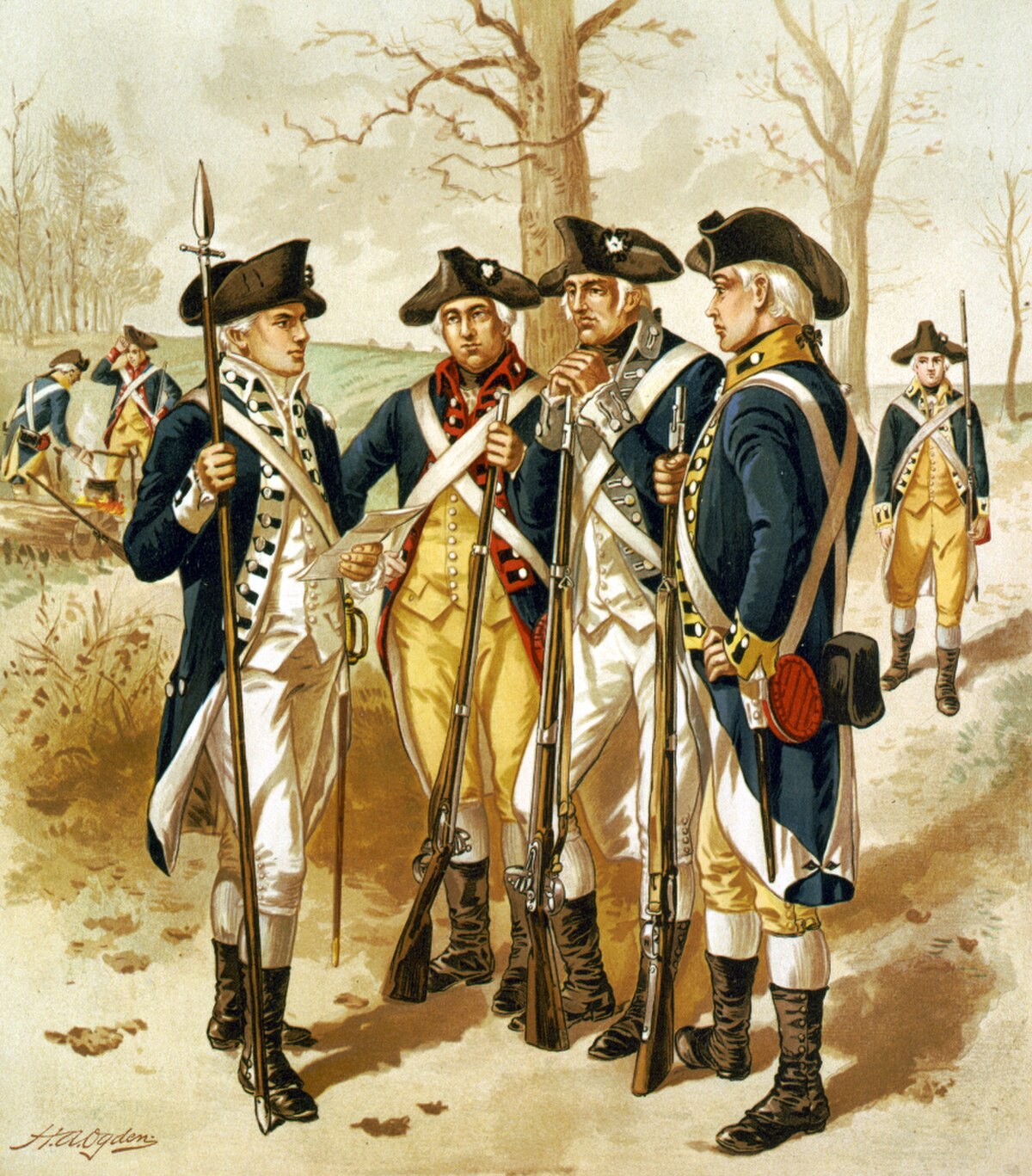
Commander-in-chief of the Continental Army
Independence Hall, Chestnut StThe American Revolutionary War began on April 19, 1775, with the Battles of Lexington and Concord and the Siege of Boston. The colonists were divided over breaking away from British rule and split into two factions: Patriots who rejected British rule, and Loyalists who desired to remain subject to the King. General Thomas Gage was commander of British forces in America at the beginning of the war. Upon hearing the shocking news of the onset of war, Washington was "sobered and dismayed", and he hastily departed Mount Vernon on May 4, 1775, to join the Second Continental Congress in Philadelphia.
Congress created the Continental Army on June 14, 1775, and Samuel and John Adams nominated Washington to become its commander-in-chief. Washington was chosen over John Hancock because of his military experience and the belief that a Virginian would better unite the colonies. He was considered an incisive leader who kept his "ambition in check". He was unanimously elected commander in chief by Congress the next day.
Washington appeared before Congress in uniform and gave an acceptance speech on June 16, declining a salary—though he was later reimbursed expenses. He was commissioned on June 19 and was roundly praised by Congressional delegates, including John Adams, who proclaimed that he was the man best suited to lead and unite the colonies. Congress appointed Washington "General & Commander in chief of the army of the United Colonies and of all the forces raised or to be raised by them", and instructed him to take charge of the siege of Boston on June 22, 1775.
Congress chose his primary staff officers, including Major General Artemas Ward, Adjutant General Horatio Gates, Major General Charles Lee, Major General Philip Schuyler, Major General Nathanael Greene, Colonel Henry Knox, and Colonel Alexander Hamilton. Washington was impressed by Colonel Benedict Arnold and gave him responsibility for launching an invasion of Canada. He also engaged French and Indian War compatriot Brigadier General Daniel Morgan. Henry Knox impressed Adams with ordnance knowledge, and Washington promoted him to colonel and chief of artillery.
